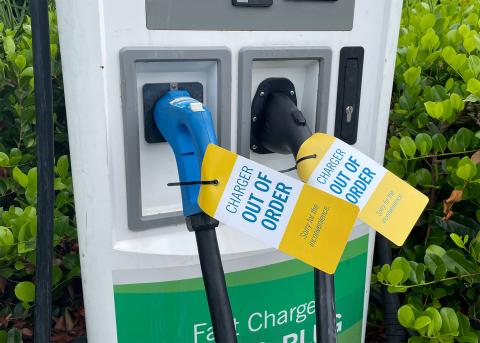Zero Public EV Chargers Built Since Congress Approved $7.5 Billion To Expand Network

by Tom Ozimek
A key part of the Biden administration's push to reach net-zero emissions by 2050 is to sharply expand the nation's charging infrastructure for plug-in EVs in order to align with President Biden's goal of having half of all new vehicles sold in the United States to be electric by 2030.
At the forefront of this effort is the federal government's commitment to pour in $7.5 billion as part of the Infrastructure Investment and Jobs Act (also known as the Bipartisan Infrastructure Law) to build 1.2 million public chargers to keep up with what the White House said over the summer was rapidly growing demand for EVs.
The $7.5 billion federal funding plan for EV chargers consists of the $5 billion National Electric Vehicle Infrastructure (NEVI) program and the $2.5 billion Charging and Fueling Infrastructure Discretionary Grant Program, both of which are being administered through agencies affiliated with the Department of Transportation (DOT).
However, despite more than $2 billion of the $7.5 billion in federal EV charger funding already authorized under the programs, not even half of states have started to take bids from contractors for construction—and not a single new public charger has been built.
"Already, seven states have issued conditional awards for new NEVI stations amounting to $101.5 million, two states have agreements in place, and 17 states are soliciting proposals for new stations," the Joint Office of Energy and Transportation, which is leading the Biden administration's EV charger efforts, said in an update at the end of October.
An initial wave of 26 states are leading the effort to build out the public EV charger network, with Ohio being the first to break a public EV charger construction project funded by the NEVI program.
The Epoch Times has reached out to the Federal Highway Administration (FHWA), which is administering the $5 billion NEVI program, with a request for more up-to-date information about the status of the various federally-funded EV charger projects.
Many Republicans have been lukewarm on the idea of federal funding for EV infrastructure, with former President Donald Trump voicing staunch opposition to EV subsidies, arguing that the government should step aside and let market forces decide what vehicles people drive.



























